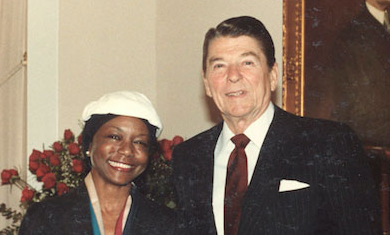Testifying before Congress in 1981, Dr. Mildred Fay Jefferson couldn’t have been blunter.
According to Dr. Jefferson, the first black woman to graduate from Harvard Medical School, the 1973 Roe v. Wade decision “gave my profession an almost unlimited license to kill.”
She continued:
“With the obstetrician and mother becoming the worst enemy of the child and the pediatrician becoming the assassin for the family,” Dr. Jefferson testified, “the state must be enabled to protect the life of the child, born and unborn.”
Dr. Jefferson didn’t live to see Roe reversed this past June. She died in 2010 at the age of 84. But her unflappable and unapologetic defense of life still serves as a model of engagement, especially in a heavily divided and confused country.
“Abortion is a class war against the poor,” she stated. “People who are fewer will disappear soonest and fastest, especially people who have a background of neglect. If people think their problems result from being a minority, why should they become more minor?”
Shortly after abortion on demand became the law of the land, Dr. Jefferson lamented:
“No woman is in as difficult a position as a child in jeopardy of losing its life,” she once said. “Besides, I don’t want a unisex socialist society patterned after the Soviet Union. I don’t want the gray socialist world of the sexes. And I don’t want to step down to equality.”
Her father a Methodist minister and her mother a teacher, Jefferson credited her parents with helping guide and direct her trailblazing path.
“I had a little better start in life than some people,” she said. “I came from a background of a community and tradition that understood the value of sharing. I also was inculcated with the sense of duty, honor and obligation. So it became second nature that we do the very best with what we have.”
Dr. Jefferson said it was her father, especially, who instilled in her a simple but straight-forward philosophy: “Decide what you wish to do most, then set out to do it.”
And at 5 foot 3 inches tall and 109 pounds, what did the diminutive East Texas girl want to accomplish?
Mildred wanted to save lives and help change the world.
After graduating summa cum laude from Texas College, she earned a master’s degree from Tufts and the Harvard Medical School. She then became the first female general surgeon at Boston University’s Medical Center.
As it happened, Dr. Jefferson first decided to speak out about her objections to abortion in 1970 after the American Medical Association board no longer objected to the killing of pre-born children, saying it was a decision between “a woman and her doctor.” This was a stark change from the late 1800s when it was the AMA who championed the outlawing of the practice.
It was Dr. Jefferson who helped rally and coalesce pro-life leaders, eventually leading to the formation of the National Right to Life Committee. She served as the fledgling organization’s president between 1975 and 1978.
“I am at once a physician, a citizen and a woman, and I am not willing to stand aside and allow this concept of expendable human lives to turn this great land of ours into just another exclusive reservation where only the perfect, the privileged and the planned have the right to live,” she stated.
During the 1970s, Dr. Jefferson crisscrossed the country making hundreds of speeches, explaining why abortion was wrong and how it unevenly targeted black children. It was during this timeframe that California Governor Ronald Reagan first crossed paths with the pioneering physician. Her persuasive and passionate oratory forced the future president to finally see abortion as a moral wrong. After seeing her on a 1973 television program, Governor Reagan wrote:
“I wish I could have heard your views before our legislation was passed. You made it irrefutably clear that an abortion is the taking of human life.”
The governor was referencing a bill he had just signed legalizing abortion up to twenty weeks.
When it was suggested she was being used by pro-lifers after being named president of the National Right to Life organization, she replied:
“Nobody uses me,” she said. “That’s one reason professional liberals have never liked me, because I won’t be used. I do what I do for a sense of principle, like Don Quixote.”
As state battles heat up post Roe, it would be good to remember the legacy and words of the late Dr. Mildred Jefferson:
“The fight for the right to life is not the cause of a special few, but the cause of every man, woman and child who cares not only about his or her own family, but the whole family of man.”






